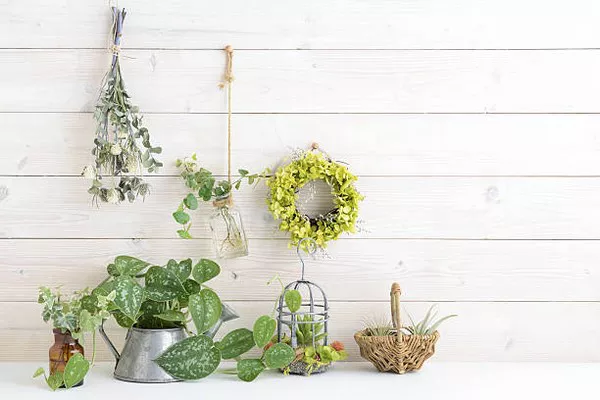Scales are notorious pests that can wreak havoc on your beloved plants. These tiny, sap-sucking insects can quickly multiply and cause significant damage if left unchecked. Fortunately, there are several effective strategies to eliminate scales on plants and restore their health and vitality. In this article, we will delve into the world of scales, understand their life cycle, and explore various methods to eradicate them from your garden or indoor plants.
Understanding Scales
Scales are small, oval-shaped insects that belong to the order Hemiptera. They are known for their protective scale-like covering, which makes them appear as small bumps on plant stems, leaves, and even fruit. Scales are often mistaken for harmless growths on plants, but they are, in fact, harmful parasites that feed on plant sap.
There are various species of scales, but they all share a similar life cycle. Adult female scales lay eggs underneath their protective shell, while males are typically winged and more mobile. After hatching, young scales, known as “crawlers,” emerge and begin to feed on plant sap. As they grow, they secrete a waxy substance that forms the characteristic protective shell. This shell shields them from natural predators and many chemical treatments, making scales notoriously difficult to control.
Now that we understand the enemy, let’s explore effective strategies to combat scales and protect your precious plants.
1. Inspection and Identification
The first step in managing a scale infestation is to inspect your plants regularly. Look for signs of scales, such as small, waxy bumps on stems and leaves. Early detection is crucial because scales can multiply rapidly if left unchecked.
Once you’ve identified scales on your plants, try to determine the scale species involved, as different species may require slightly different treatment approaches. Common scale species include soft scales and armored scales. Soft scales produce a waxy, honeydew-like substance, while armored scales have a more robust protective shell.
2. Pruning and Removing Infested Plant Parts
One effective method for dealing with scales is to prune and remove heavily infested plant parts. Use sharp pruning shears to cut off affected stems and leaves, making sure to dispose of them properly. This can help reduce the scale population and prevent further spread.
When pruning, be cautious not to damage the healthy parts of the plant. Regularly disinfect your pruning tools with rubbing alcohol to avoid spreading scales to other plants.
3. Natural Predators
Introducing natural predators can be an environmentally friendly way to control scales. Ladybugs, lacewings, and parasitic wasps are some of the beneficial insects that feed on scales. You can attract these predators to your garden by planting nectar-rich flowers or purchasing them from garden supply stores.
4. Horticultural Oils
Horticultural oils, such as neem oil or insecticidal oil, are effective at smothering scales and disrupting their protective covering. These oils work by suffocating the scales and preventing them from feeding on the plant’s sap. To use horticultural oils, dilute them according to the product instructions and spray them onto the infested plants. Ensure thorough coverage, as the oil must come into direct contact with the scales to be effective.
It’s important to apply horticultural oils during periods of mild weather to prevent plant stress, and avoid using them on drought-stressed plants or when temperatures are too high.
5. Insecticidal Soaps
Insecticidal soaps are another option for scale control. These soaps work by dissolving the protective waxy coating of scales, ultimately leading to their demise. To use insecticidal soaps, mix the recommended concentration with water and thoroughly spray the affected plants, making sure to target the scales directly.
Insecticidal soaps are typically less harmful to beneficial insects and the environment compared to synthetic chemical pesticides.
6. Systemic Insecticides
If you’re facing a severe scale infestation and other methods have proven ineffective, you may consider using systemic insecticides. These chemicals are absorbed by the plant and spread throughout its tissues, making the plant itself toxic to the scales that feed on it.
Before using systemic insecticides, carefully read and follow the manufacturer’s instructions, and be mindful of the potential environmental impacts. Avoid using systemic insecticides on plants that may be consumed by humans or pets.
Conclusion
Scales can be a persistent and damaging pest for your plants, but with the right strategies, you can effectively manage and eliminate them. Regular inspection and early detection are key to preventing scale infestations from becoming severe. Utilize natural predators, horticultural oils, insecticidal soaps, and systemic insecticides as needed, always following safety guidelines and considering the environmental impact.
Remember that a healthy, well-maintained garden or indoor plant collection is less susceptible to scale infestations. Proper watering, fertilization, and overall plant care practices can help your plants thrive and resist these pesky insects. By staying vigilant and using a combination of these strategies, you can keep your plants free from scales and enjoy a vibrant, pest-free garden.


